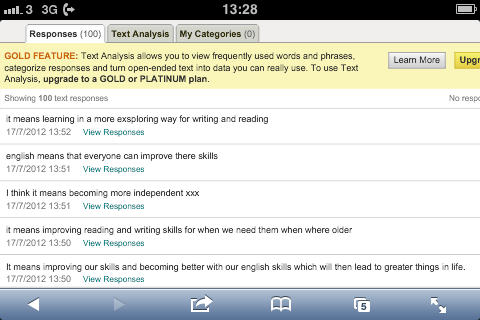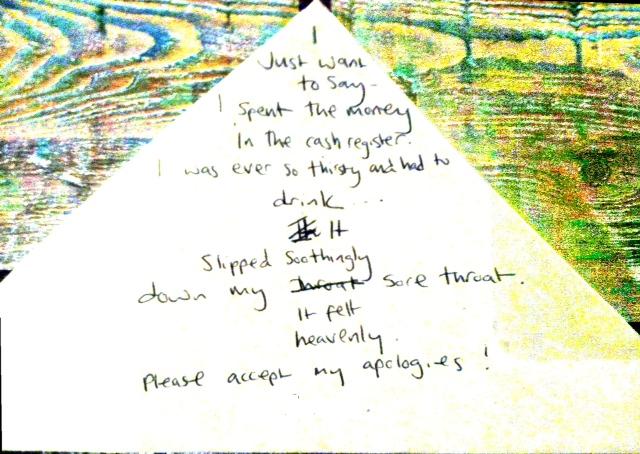Towards the end of last academic year, I started fretting about how pupils would respond to the question, ‘What does ‘doing’ English at Maricourt mean to you?’ Put simply, I was worried that we were in danger of becoming an exams factory. This was reinforced in my mind when one of my colleagues commented that teaching sometimes felt like ‘shovelling wet cement.’ If that was what it felt like to teach English, what must it be like to be on the receiving end? I had to face up to the situation and ask the pupils themselves. This is a sample of what they said:
It was not that there was anything especially worrying in what they said, what troubled me was what they didn’t say. They didn’t mention creativity, they didn’t mention imagination and they certainly didn’t mention inspiration! Something had to be done.
We decided that the best way to reenergise the curriculum, our teaching and the pupils would be to make ‘making’ poems central to our classroom repertoire. This would have a number of benefits. Most obviously, the focus on poetry would reintroduce that crucial, lost creativity into the curriculum. Better still, the nature of free verse meant that less able pupils could concentrate on working with the words themselves without getting hung-up about spelling and punctuation. Finally, we felt sure that encouraging pupils to become ‘writers’ would enable them to approach reading ‘from the inside.’ Having made authorial decisions themselves, they would be in a better position to get ‘beneath the bonnet’ of any text and see what makes it work from the perspective of a writer.
We decided to concentrate on structure (through the exploration of ‘line breaks’ in free verse), poetic voice and drafting. We then set about devising units for years 7,8&9. Leaving nothing to chance, we engaged the services of a local poet, Tony O’Neil, to act as poet in residence. In addition to leading poetry workshops, Tony agreed to help create an anthology of pupils’ poetry and to host an evening in the summer term, when the parents and guardians of those pupils whose work had been anthologised would come together to celebrate the work. I envisage wine, cheese and vol-au-vents (they must be due a come back)!
Anyway, I would like to use this and subsequent blogs to share with you some of the approaches we have adopted. No doubt some of them will be familiar, but I’d like to think that there might be some fresh ideas too. I should at this stage declare my sources. Cliff Yates’ book Jumpstart poetry in the Secondary School has proved to be invaluable. The book is still available from Amazon, but I have not worked out how to embed a link (sorry)!
We used the poem ‘This is Just to Say’, by William Carlos Williams as our starting point with Y7.
Tasked to answer the question, ‘What is Poetry’ and having investigated various examples of writing in groups, the pupils decided that one of the most fundamental differences between poetry and prose is the way in which the poet ‘breaks the line.’ I then gave out a version of ‘This is Just to Say’ set out as a prose paragraph. The pupils were adamant that this could not be poetry, so I challenged them to experiment with different ways of ‘breaking the line’ in order to unlock the musicality of the language (Don’t worry – I didn’t present it to them in quite those terms)! We then compared our versions with Williams’ version and discussed whether or not it now qualified as poetry.
I told the class that Williams was a doctor and that one possible reason for the ‘shape’ of his poem was that it was written on a prescription note. We then talked about whether or not the pupils had ever apologised for something that they had enjoyed doing – (some cracking oral work). Pupils then worked on different shapes of coloured paper and wrote their own ‘apology’ poems.
By the end of the lesson, the classroom was awash with coloured paper and the pupils were practically clambering over their desks to read out their work. It was particularly striking that those pupils who had hitherto been reluctant writers felt empowered to take part. Because they knew that the emphasis was on choosing exactly the right word and putting it in exactly the right place and not on spelling or punctuation, they flew! I now have a number of pupils who are mad keen to write and I am excited to see how this impacts on their ability to ‘read’ poetry as ‘writers’, as opposed to just ‘readers.’




